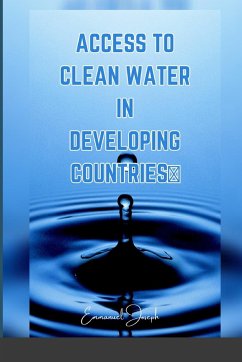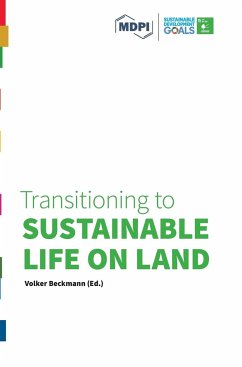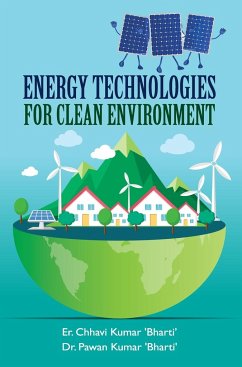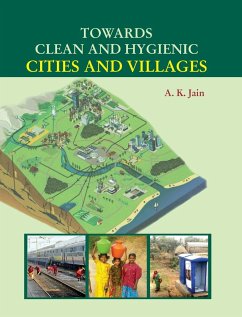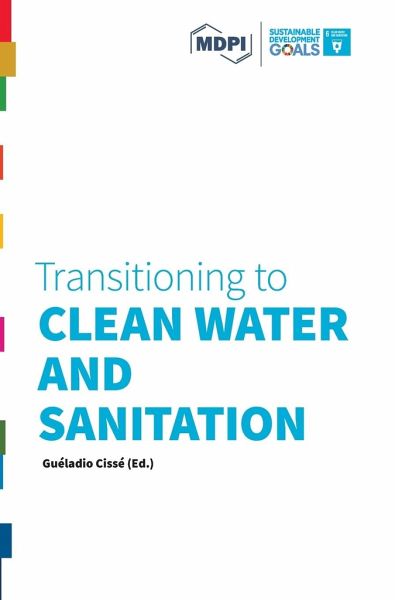
Transitioning to Clean Water and Sanitation
Versandkostenfrei!
Versandfertig in 1-2 Wochen
51,99 €
inkl. MwSt.

PAYBACK Punkte
26 °P sammeln!
Transitioning is a key concept for innovative management in several domains, particularly the challenges emerging from climate change. Transitioning to Clean Water and Sanitation will, thus, contribute to an understanding of how transitions are underway for adapting water and sanitation systems to the projected impacts of climate change, with the aim of ensuring clean water, improved sanitation and proper hygiene conditions for a better protection of health in all parts of the world. The recent Intergovernmental Panel on Climate Change (IPCC) Special Report on the Impacts of Global Warming of ...
Transitioning is a key concept for innovative management in several domains, particularly the challenges emerging from climate change. Transitioning to Clean Water and Sanitation will, thus, contribute to an understanding of how transitions are underway for adapting water and sanitation systems to the projected impacts of climate change, with the aim of ensuring clean water, improved sanitation and proper hygiene conditions for a better protection of health in all parts of the world. The recent Intergovernmental Panel on Climate Change (IPCC) Special Report on the Impacts of Global Warming of 1.5 °C states that climate-related risks to health, livelihoods, food security, water supply, human security, and economic growth are projected to increase with a global warming of 1.5°C and to increase further to 2°C. In addition to water- and food-borne diseases, some vector-borne diseases (e.g., malaria and dengue fever) will become more frequent, including potential shifts in their geographical range. Climate change affects health through a range of different pathways amongst which water and sanitation play a major role in disease transmission. The increase of temperature and precipitation in many places in the world affect the transport and dissemination of infectious agents and the growth as well as survival of pathogens and vectors, particularly through water and sanitation systems. Therefore, any development perspective for the sustainable management of water and sanitation systems can no longer ignore the projected impacts of climate change in order to provide innovative solutions and grant successful management. Nor can we ignore the socio-political dimensions entailed therein and the persisting inequalities in the provision of clean water and sanitation across the globe in urban as well as rural areas. Thereby, water may both be the target and the source of conflict. This volume draws on a multi-disciplinary perspective to lay bare the possibilities and challenges for granting access to clean and safe water infrastructures.



